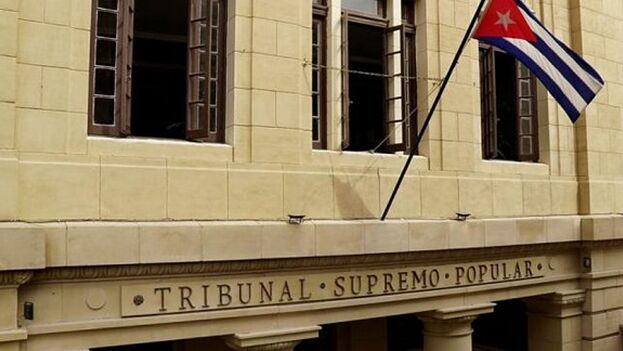
![]() 14ymedio, Reinaldo Escobar, Havana, 30 November 2022 — There are at least three ways to analyze Cuba’s new Penal Code that comes into force this first of December.
14ymedio, Reinaldo Escobar, Havana, 30 November 2022 — There are at least three ways to analyze Cuba’s new Penal Code that comes into force this first of December.
The first is paralyzing and ends in the acceptance of the idea that everything a citizen does that deviates one millimeter from what is convenient for the Government or the Communist Party represents a reason to be sentenced to prison. Here, especially inscribed, is the gaze of those who are political opponents, social activists or independent journalists.
This analysis pays attention to Article 119, which punishes with the death penalty anyone who uses force to change the system; Article 120, which penalizes anyone who demands the same but exercising “arbitrarily any right or freedom recognized in the Constitution of the Republic” with up to ten years in prison; and Article 143, which also punishes with ten years anyone who receives funds or finances for activities against the State and its constitutional order.”
The second way of reading the new Code is based on the optimistic belief that the principle of social injuriousness (Article 1.3) will be fully applied, through which, “in order to impose a sanction, it is required that the act produce an injury to legal property of entities protected by law, or endangers them or risks causing it.” If the damage caused is not demonstrated in court, there will be no crime for which to be convicted.
This point of view pays attention to Article 180, which penalizes the official who maliciously promotes the persecution of a person “whose innocence is known,” or to Article 181, which punishes the public official who “applies or orders the application of a security measure without an order from the competent court,” which is supposed to nullify the prohibitions against leaving the country or the limitations on movement to which dissatisfied people are arbitrarily subjected.
The third way of facing the Code is from the point of view that regardless of what is written in the document, “these people,” those who are in charge in Cuba, will always do whatever they want, and it makes no sense to try to determine the degree of threat or relief that the new legal body represents.
Beyond the views on the Code, the bets on what will happen with the new regulations move between two options: the dictatorship will severely penalize any discrepancy; or, simply, it calculates that the icy breath of a terrible threat will be enough to neutralize the opponents, reduce them to silence or incite them to moderation. We will know soon.
____________
COLLABORATE WITH OUR WORK: The 14ymedio team is committed to practicing serious journalism that reflects Cuba’s reality in all its depth. Thank you for joining us on this long journey. We invite you to continue supporting us by becoming a member of 14ymedio now. Together we can continue transforming journalism in Cuba.
